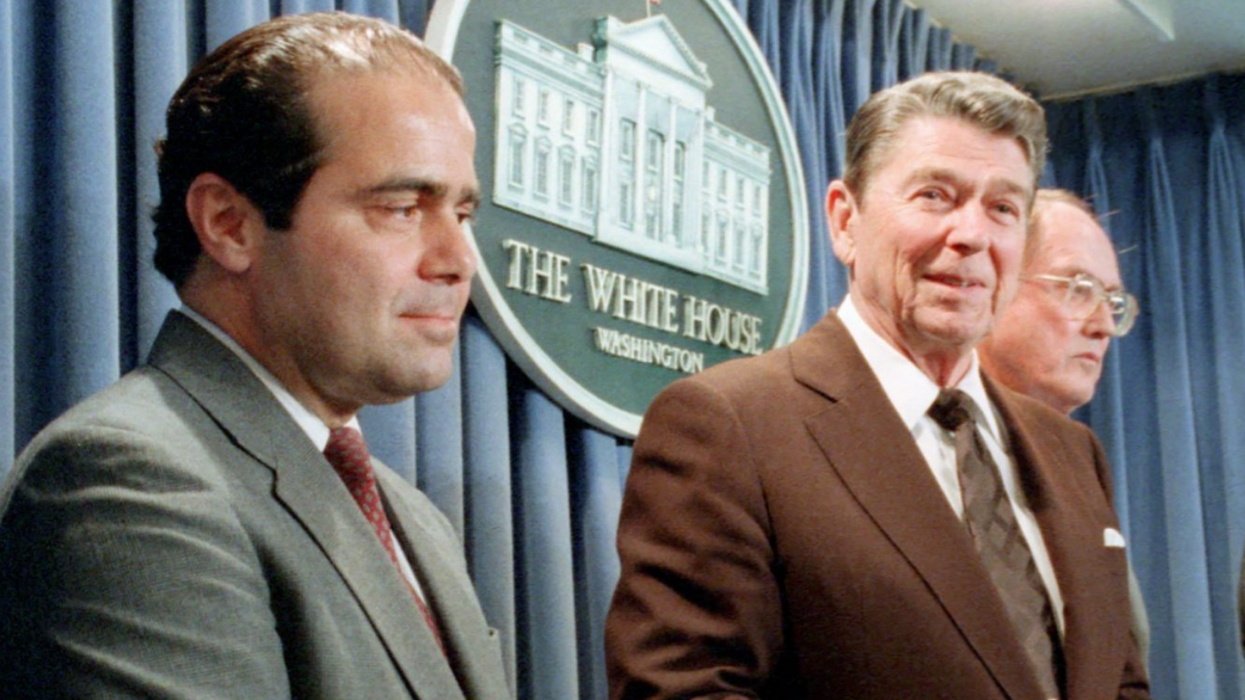On The High Court, Affirmative Action Isn't Only For Republicans
Every day since President Joe Biden reiterated his pledge to nominate the first Black woman to the U.S. Supreme Court, conservatives have reacted with the most predictable jeers and complaints. We've heard all these tiresome whines so many times before. But for some strange reason, the right-wing worries about "reverse discrimination," tokenism and lack of qualifications only apply to minority nominees, and then only when those minority nominees are Democrats.
When former President George H.W. Bush chose Clarence Thomas to fill the high court seat left vacant by the retirement of Thurgood Marshall, did anyone actually believe that the former equal employment bureaucrat was the most qualified possible nominee? Bush denied that Thomas was a "token," but the president's endorsement of him as "best qualified at this time" seemed lukewarm at best. Setting aside Anita Hill's entirely plausible testimony about his alleged sexual harassment of her, Thomas carried a thin resume of judicial achievement and scholarship, receiving the lowest possible "qualified" rating by the American Bar Association.
But Thomas was an ideologically reliable conservative — an extremist, in fact, as we now know — and he was Black, which provided convenient cover for his hostility to civil rights. So, this "affirmative action" hire, achieved at the expense of every other possible nominee of any background, disturbed conservatives not at all. They defended him with absolute fervor and ferociously denounced any opposition as racist. (Thomas played the race card too when he accused his opponents of "a high-tech lynching.")
Bush wasn't the first Republican president to apply such an exclusionary — or was it inclusionary? — criterion to a Supreme Court appointment. His predecessor and partner Ronald Reagan had promised during the 1980 campaign to name the first woman to the court, for the utterly sensible reason that vital institutions should reflect the society they serve, including the female half. At the time, there wasn't even a women's lavatory near the courtroom.
This instance of affirmative action for women, by definition excluding all men from consideration, raised not a word of objection from Reagan's reactionary base — who disliked Sandra Day O'Connor only because they correctly suspected she wouldn't overturn the Roe v. Wade abortion rights precedent.
Five years later, Reagan got the chance to choose again when Warren Burger retired and was replaced as chief justice by William Rehnquist. The Gipper's short list was so short that it apparently included only one name he took seriously, Antonin Scalia. Aside from Scalia's rigid 17th century worldview, what recommended him was that, as Reagan put it, the judge was "of Italian extraction." Yes, the iconic conservative president based his choice on the candidate's ethnic background. Or as his former White House counsel Peter Wallison quoted him: "We don't have an Italian American on the court, so we ought to have one."
As Wallison described the process, that was the bottom line for Reagan, who asked about Scalia's ethnic background, and then spent no more than 15 minutes interviewing him for the job. "I think [Reagan] felt that it would be great to put an Italian American on the Supreme Court," Wallison later told an oral history interviewer.
Such sentiment doesn't bother me nearly as much as Scalia's "originalist" jurisprudence, which always struck me as both unfaithful to the Founders' intentions and intellectually ludicrous. What is notable, however, is that nobody ever complained that Reagan somehow violated the Constitution or American values by going ethnic — with a highly political calculation that shored up the Republican base in a conservative Catholic community.
Fulfilling the aspirations of a party constituency — and expanding the definition of American to include the previously excluded — is only bad when a Democrat does it. Republicans get away with playing ethnic political games, including the toxic versions favored by former President Donald Trump, but they shriek furiously when Democrats attempt to redress historical injustices that are no longer acceptable.
The Black female judges that Biden is considering to replace Justice Stephen Breyer are all exceptionally qualified and able. That they have ascended to this level in a society that consistently undervalues them should tell us just how qualified they are.
So, as Jordan Weissman slyly noted in Slate, it is perfectly sound for Biden to follow in Reagan's footsteps by bringing diversity to the Supreme Court with excellent female candidates of color. And if Senate Republicans have any decency — rather than their usual urge to foment racial paranoia — they would say so too.
To find out more about Joe Conason and read features by other Creators Syndicate writers and cartoonists, visit the Creators Syndicate website at www.creators.com.










